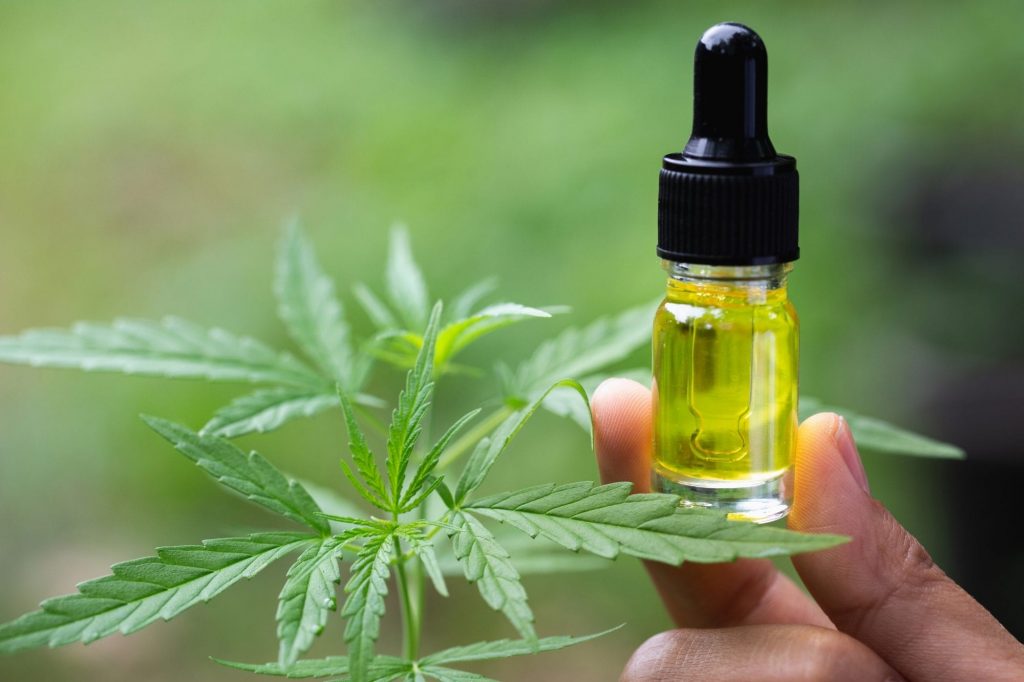Since Canada legalized medical and recreational marijuana in 2018, cannabis has a hot topic of discussion. Two naturally occurring compounds are gaining even more attention—CBD and THC.
The cannabis plant produces a thick substance that’s rich in cannabinoids. CBD (cannabidiol) and THC (tetrahydrocannabinol) are the most common and are both responsible for users experiencing drug-like reactions.
If you have been trying THC or CBD products lately, you might have noticed that THC can make you feel euphoric, while CBD is more relaxing. Though you know CBD and THC are different in characteristics and effects, you’re unsure how and why.
Whether you want to alleviate a sore muscle or master the art of rolling joints, every cannabis user should understand CBD and THC’s difference.
Table of Contents
How THC and CDB Work in the Body
There are two types of cannabinoids—endocannabinoids and exogenous cannabinoids.
All vertebrates, including humans, produce endocannabinoids in their bodies. These neurotransmitters bind to specific receptors to influence your mood, sleep, pain, and other functions. On the other hand, exogenous cannabinoids aren’t produced in the body but found in marijuana in the form of THC, CBD, and other compounds.
The endocannabinoid system that regulates hormone secretion contains two receptors that respond to cannabis—CB1 and CB2. CB1 receptors are more noticeable in the central nervous system, whereas CB2 receptors are prominent in the peripheral nervous system.
Compounds that affect CB1 receptors will cause psychoactive effects as they affect the brain and spinal cord. Compounds that affect CB2 receptors will affect the entire body, thereby reducing inflammation without giving the “high” feeling.
THC interacts with CB1 receptors and binds to it. Though it doesn’t affect the brain stem, shutting off your breath or heart as opioids results in euphoric feelings. Meanwhile, CBD interacts with CB2 receptors and reduces inflammation without causing psychoactive effects.
What Does That Mean for Me?
You will often hear people using the term cannabis over terms like marijuana or hemp. However, marijuana and hemp are vastly different from each other.
Marijuana—
A Cannabis Sativa species, marijuana has high amounts of THC and moderate amounts of CBD. The potentially harmful implication of using medical marijuana is intoxication. In some instances, it can also be beneficial for patients as THC’s relaxing effect in marijuana will alleviate anxiety.
However, smoking marijuana might have adverse effects. The smoke contains a range of harmful chemicals that can lead to respiratory diseases.
Hemp—
A high-CBD, low-THC variety of cannabis plant, most commercial CBD products on the market are made from hemp. Hemp is easy to cultivate compared to marijuana, which requires a more controlled environment. The extractable amount of CBD in a hemp plant is minimal. Thus, it takes a lot of hemp plants to prepare CBD products like tincture or oil.
Typically, CBD products will not have any THC in it, whereas THC products will usually have a slight amount of CDB.
What Are Some Good THC and CBD Products
CBD and THC offer many of the same medical benefits. CBD doesn’t provide the euphoric high that otherwise occurs with THC.
CBD is used for various health conditions like:
- inflammation
- psychosis or mental disorders
- inflammatory bowel disease
- nausea
- migraine
- depression
- anxiety
While THC helps with the following:
- pain
- muscle spasticity
- glaucoma
- insomnia
- low appetite
- nausea
- anxiety
There are so many ways THC and CBD can enter the body; vaping, through the skin, smoking, and ingesting. The varieties of cannabis products are on the rise. Some products are more prominent than others.
Cannabis Oil—
There are many ways to consume CBD oil. This versatility has made it a popular option among cannabis consumers. As CBD oil often contains low traces of THC, you can use it to get the desired effect like anxiety, pain, and nausea relief without the psychoactive reactions.
Cannabis Skin Care Products—
As cannabinoid receptors are present in the skin, CBD products like balms and creams can benefit. However, the actual benefits that your CBD beauty products offer will depend on the types of cannabinoids added in it.
Researches prove that creams and lotions can cure acne and help with hydration and pain relief. Cannabis bath bombs and bath salts offer comfort and relaxation while balm salves provide muscle pain relief. A few other skincare products currently being introduced in the market include lip gloss, body wash, and mascara.
Cannabis Edibles—
Cannabis edibles are wildly popular as they have more potency than the other alternatives. The most sought-after edibles are the pot cookie, marijuana gummies, and the weed brownies. Cannabis chocolates have also evolved to become something of a trend recently. It is also a more refined way of using cannabis than smoking a joint.
Cannabis Concentrates—
Cannabis concentrates such as shatter, wax, honey oil, etc. offer a peculiar and more potent high than the basic flower. As the name suggests, these are cannabis extracts that have been put through a process where the desired chemicals like THC, CBD, and terpenes are concentrated.
THC And CBD: Similar Yet Different
Both CBD and THC are found in cannabis plants and offer some essential health benefits. Though they are both deemed safe, you should be mindful of the potential side effects. They can also interact with the other medication you’re taking, resulting in complications. It is always suggested to consult your doctor or a qualified CBD clinician before deciding to use any CBD or THC products.







